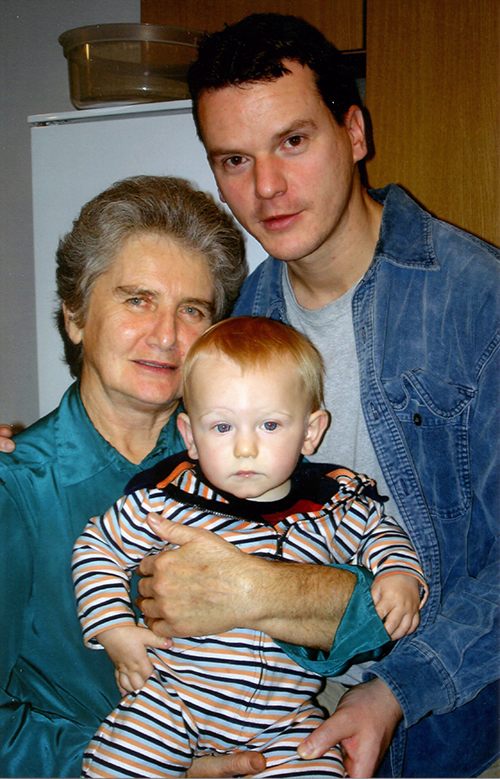
USC kidney researcher Janos Peti-Peterdi has been selected as the 2015 recipient of the ASN-AHA Young Investigator Award. Co-sponsored by the American Society of Nephrology (ASN) and the Council on the Kidney of the American Heart Association (AHA), the annual award recognizes a kidney researcher age 45 or younger with an outstanding record of achievement and creativity.
Peti-Peterdi embarked early on the path to becoming a kidney researcher.
“My destiny was already determined before I was born,” said Peti-Peterdi, principal investigator with USC Stem Cell, and professor at the Zilkha Neurogenetic Institute (ZNI) and in the Department of Physiology and Biophysics. “When I was born, my mother was already very ill, suffering from kidney disease. So the only way to save her was, of course, to make medicine more perfect.”
With this goal in mind, Peti-Peterdi earned his MD and PhD degrees at Semmelweis University and assisted in a kidney transplant clinic in Budapest, near his hometown in Hungary. In this same clinic, his mother received her own transplant nearly 20 years ago to treat her chronic kidney disease (CKD) originating from a streptococcal infection.
In 1997, Peti-Peterdi moved to the United States, where he completed a postdoctoral fellowship and eventually became an assistant professor at the University of Alabama at Birmingham (UAB). At UAB, Peti-Peterdi joined an active community of nearly 40 Hungarian scholars. He played regular soccer games, and fell in love with a fellow Hungarian, Reka, who became his wife and the mother of his three children.
Despite this strong Hungarian presence, Alabama was challenging for him. “I’ll never forget the first time I went to a burger place,” he said. “I wanted to order a burger and French fries, and I got a cup of ice cream. So something must have been very terrible with my English. But I’ve kept my Hung-lish accent.”
Although he didn’t pick up a Southern drawl, he did pick up research interests that persist to this day. His laboratory uses a high-resolution imaging approach, called multiphoton fluorescence microscopy, to observe how the living kidney controls blood pressure and body fluid balance under normal and disease conditions.
He recently made an advance in quantitatively visualizing the function of the living kidney’s filter, called the glomerulus, at the cellular and molecular level. He has now tracked individual cells of the glomerulus, shedding light on the mechanisms of both injury and regeneration.
With two new grants from the National Institutes of Health (NIH), he continues to study important glomerular cell types — including podocytes, which form part of the kidney’s filtration barrier, and macula densa (MD) cells, which sense and communicate subtle changes in salt concentration, fluid flow and other metabolic factors. Amgen is collaborating to target podocytes to treat kidney disease, and the AHA is funding further research into the role of MD cells in high blood pressure-related kidney injury and disease.
“I’ve always been interested in visual approaches to seeing things in the intact kidney, because it’s a very complex organ,” said Peti-Peterdi, who established the NIH-funded Multi-Photon Microscopy Core at USC.
Peti-Peterdi is also studying kidney stem cells. With a grant from the American Diabetes Association, he is investigating tissue remodeling in the diabetic kidney in hopes of finding new treatments and therapies for patients. In collaboration with the laboratory of ZNI’s director Berislav Zlokovic, Peti-Peterdi is comparing the regenerative capabilities of the blood-brain barrier and the kidney’s filtration barrier.
“We in the USC kidney research community are very fortunate to have a scientist of his caliber and collegiality,” said fellow kidney researcher Andy McMahon, chair of the executive committee of USC Stem Cell.
In recognition of Peti-Peterdi’s growing body of research, he will accept the ASN-AHA Young Investigator Award plaque and $5,000 grant, and deliver a 35-minute address during ASN Kidney Week’s plenary session on November 8 in San Diego. Recently, he was also elected to the American Society for Clinical Investigation and the European Academy of Sciences and Arts.
“I’m very optimistic about finding the ultimate cure for kidney disease, which is my lifetime goal,” said Peti-Peterdi. “I still, almost every day, get up and say, ‘What can I do today to save my mother and the millions of other CKD patients from this devastating disease?’ ”
